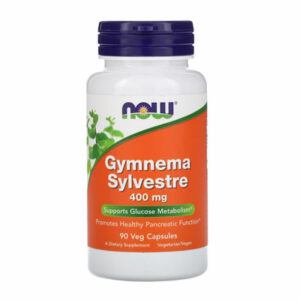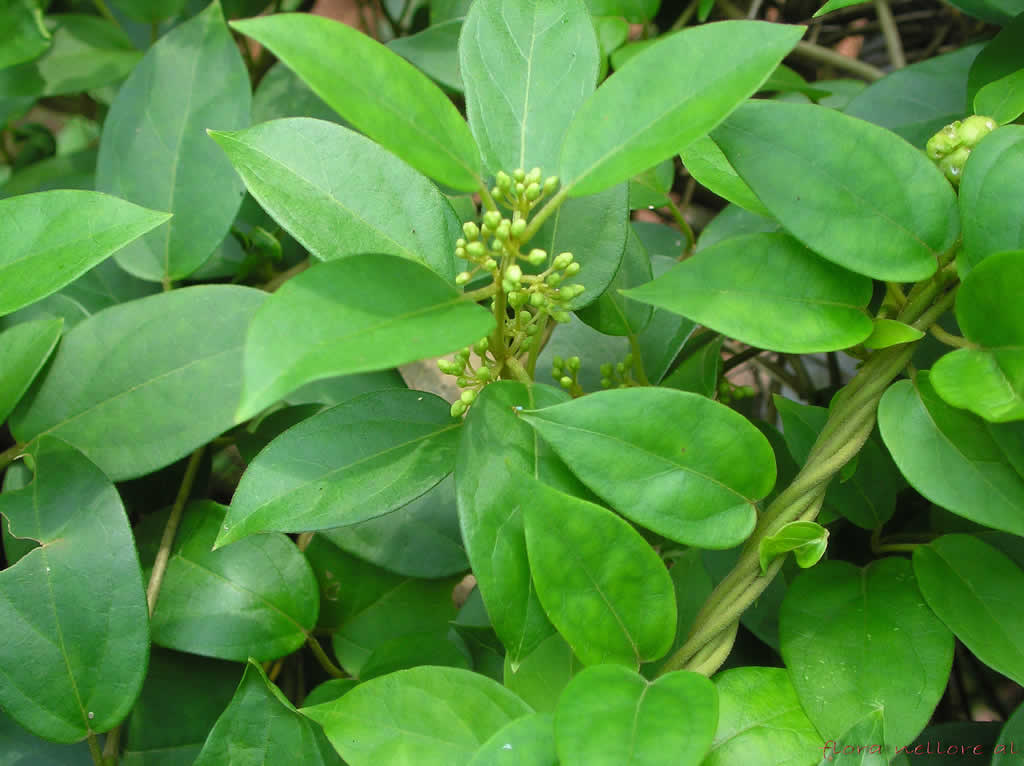Gymnema Sylvestre has a deep historical origin. It is an anti-diabetic plant used in folk, Ayurvedic, and homeopathic medical systems.
Do you know the benefits of Gymnema Sylvester?
The main medicinal parts are leaves and roots, which are generally considered to have antiviral, diuretic, anti-allergic, hypoglycemic, hypolipidemic, analgesic, and anti-rheumatic effects.
Table of Contents
- What is Gymnema Sylvestre?
- Gymnema Sylvestre dosage (how to eat)?
- What are the benefits of Gymnema Sylvestre?
- Are there any side effects of Gymnema Sylvestre?
- Safety Precautions
- Where to buy the most recommended Gymnema Sylvestre extract?
What is Gymnema Sylvestre?
Gymnema Sylvestre, also known as Gymnema Sylvestre, is a perennial woody climbing dicotyledonous plant, belonging to the Compositae family.
This plant is distributed in tropical and subtropical regions, most parts of central and southern India and southern China, tropical Africa, Malaysia, and Sri Lanka, growing in the hilly areas of evergreen forests.
Because chewing the leaves has the effect of temporarily blocking the sweet taste, it is also known as the sugar expeller.
Gymnema Sylvestre leaves contain 20 different saponins and glycosides. Multiple studies have shown that Gymnema Sylvestre acid may play an anti-diabetic effect by promoting islet cell regeneration, increasing insulin secretion, and inhibiting glucose absorption.
Gymnema Sylvestre dosage (how to eat)?
The appropriate dosage depends on several factors, such as the user’s age, health, and other conditions, and be sure to follow the relevant instructions on the product label and consult a pharmacist or doctor before use.
Tablets, capsules, liquid extracts, and dried leaves are available on the market.
Leaf: boil for 5 minutes after boiling, then soak for 10-15 minutes before drinking.
Capsules: Related research is still limited, but clinical trials of diabetes usually use 100 mg (containing 25% gymnemic acids) 3 to 4 times a day.
What are the benefits of Gymnema Sylvestre?
1. Reduce the perception of sweet taste
It is generally believed that one of the main reasons for the increasing proportion of overweight and obese people in the world is the increase in calorie intake, especially the increase in the consumption of high-calorie sweets.
The ability to perceive sweet taste in the mouth is considered to be one of many factors that affect food acceptance. Therefore, the taste may play an important role in regulating appetite and energy intake and may affect the formation of satiety.
Gymnema Sylvestre acid (gymnemic acid) in Gymnema Sylvestre has the effect of blocking sweet taste buds, and can temporarily suppress the ability to perceive sweet taste.
In one experiment, it was found that subjects who ingested Gymnema Sylvestre extract not only temporarily reduced the feeling of sweetness, but also reduced the desire for sweets, and were more likely to limit the intake of food in the subsequent meal. The amount.
*Conclusion: Gymnema Sylvestre can help to reduce the sweet taste and thus reduce the craving for sweets.
2. Beneficial for type 2 diabetes
Type 2 diabetics are the seventh leading cause of death in the United States. Compared with non-diabetics, the life expectancy of diabetics is about 7 years shorter, which is directly related to the main complications of diabetes.
It is estimated that about 366 million people worldwide have diabetes, accounting for 8.3% of the 20-79 age group. By 2030, this number is expected to rise to 552 million (9.9%).
More than 50% of diabetics die from cardiovascular disease (mainly heart disease and stroke), and it is also the only cause of end-stage renal disease, often requiring dialysis or kidney transplantation.
A quasi-experimental study (quasi-experimental, 3 months, 58 patients with type 2 diabetes) pointed out that intake of Gymnema Sylvestre extract capsules can improve polyphagia, fatigue, blood sugar (fasting and postprandial), glycated hemoglobin and blood lipid indicators.
The underlying mechanism is believed to be related to Gymnema Sylvestre stimulating the regeneration of islet B cells (Beta cells) and temporarily blocking sweet taste.
*Conclusion: For patients with type 2 diabetes, the ingestion of Gymnema Sylvestre extract may bring positive benefits to blood sugar management, but more large randomized controlled trials are still needed to support this.
3. Improve hyperlipidemia
Hyperlipidemia is mainly clinically manifested as an increase in total cholesterol (TC) and/or low-density lipoprotein cholesterol (LDL-C), but this definition is often extended to include non-optimal levels of high-density lipoprotein cholesterol (HDL- C), triglyceride (TG), apolipoprotein B (apolipoprotein B).
It is estimated that over 33.5% of adults in the United States have elevated serum cholesterol levels (≥240 mg/dL), which is one of the risk factors for atherosclerosis.
In addition, the causes of hyperlipidemia can be divided into two categories, primary causes, and secondary causes.
Primary is a genetic disease with secondary causes including nephrotic syndrome, diabetes (DM), chronic renal failure (CRF), chronic liver disease (CLD), hypothyroidism, obesity, or total parenteral nutrition (TPN) Iatrogenic disease.
An animal study showed that although Gymnema Sylvestre extract is inferior to the drug (Atorvastatin) in improving blood lipids, related indicators such as total cholesterol (TC), triglyceride (TG), very low-density lipoprotein (VLDL), low-density lipoprotein (LDL) and high-density lipoprotein (HDL) have statistically significant improvements.
*Conclusion: Animal studies have found that Gymnema Sylvestre-related extracts may help regulate blood lipids, but human studies still need to be further verified.
4. Beneficial metabolic syndrome
Metabolic syndrome (metabolic syndrome), also known as metabolic syndrome, includes abdominal obesity, insulin resistance, dyslipidemia, and elevated blood pressure. It is often associated with comorbidities such as prethrombotic state, non-alcoholic fatty liver disease, and reproductive disorders.
Since metabolic syndrome is a set of descriptors for different health conditions, not a disease, multiple concurrent definitions have emerged.
According to American Heart Association standards, nearly 35% of American adults suffer from metabolic syndrome.
A randomized, double-blind, placebo-controlled clinical trial (12-week period, for 24 patients with metabolic syndrome) pointed out that the intake of Gymnema Sylvestre (Gymnema Sylvestre) extract can reduce body weight, body mass index (BMI), very low-density Lipoprotein (VLDL), but other indicators such as insulin secretion, insulin sensitivity have no significant changes.
*Conclusion: For patients with metabolic syndrome, oral Gymnema Sylvestre fails to bring about a comprehensive improvement effect, which needs further verification by more large-scale studies
Are there any side effects of Gymnema Sylvestre?
It is safe for adults to use Gymnema Sylvestre at the appropriate dose, but possible side effects include stomach pain, nausea, and vomiting, especially when used on an empty stomach.
Excessively high doses (daily doses greater than 1 g) may lead to hypoglycemia and produce hypoglycemia symptoms such as weakness, confusion, dizziness, and loss of muscle control.
Safety Precautions
1. May induce allergic reactions, especially those who have been allergic to milkweed plants.
2. Do not use during pregnancy and breastfeeding women, children, and those with poor liver and kidney function (because the relevant safety is unknown).
3. May interfere with blood sugar control during and after surgery, please stop using it two weeks before the scheduled surgery.
4. Although Gymnema Sylvestre seems to improve hyperglycemia and insulin levels, it is not a substitute for diabetes drugs, it is best to consult a doctor before use.
5. It should not be taken simultaneously with hypoglycemic drugs (including insulin injections), which may cause hypoglycemia. Related drug names are glimepiride, glyburide, pioglitazone, rosiglitazone, chlorpropamide, glipizide, tolbutamide, etc.
6. Do not use it together with weight-loss drugs, which may affect the efficacy of the drug. The names of the related drugs are Orlistat, Lorcaserin.
7. Do not use it together with hypolipidemic drugs, which may affect the efficacy of drugs. The names of related drugs are Atorvastatin, Fluvastatin, Lovastatin, Pitavastatin, Simvastatin, Niacin, and PCSK9 inhibitors Alirocumab, Evolocumab.
Where to buy the most recommended Gymnema Sylvestre extract?
In recent years, food safety problems in various countries have exploded, and it is not healthy but black-hearted products that everyone spends on. Therefore, European and American products with relatively strict quality control have become popular products.
And iHerb.com is a large-scale medical cosmetics e-commerce company in the United States. It has a high satisfaction rate of 97% in the evaluation of Google customers. It provides global home delivery so that you can buy it without risking buying fakes through purchasing high-quality health products.

